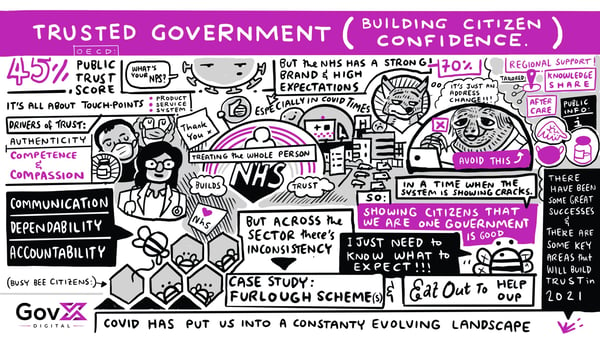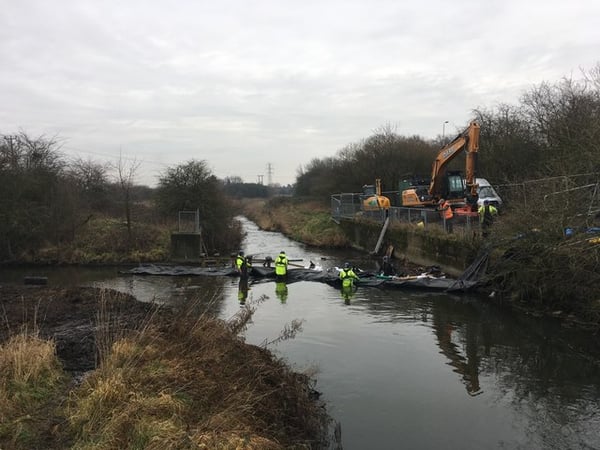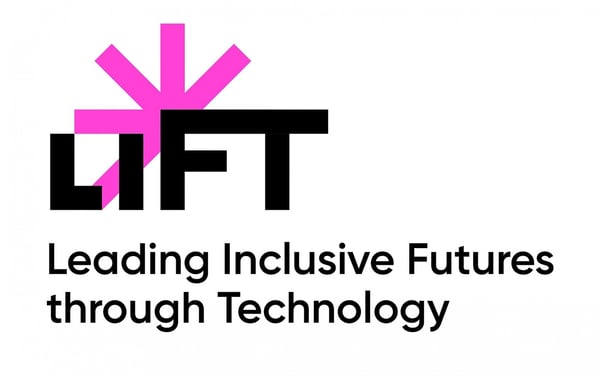Beyond Good Intentions: Getting Diversity and Inclusion-certified
GovX Digital is the first public sector conference to be independently-audited for its diversity and inclusion, and we're delighted to have received the first top-bracket "DICE Recommended" of certification.
GovX Digital (17-19 November) is the UK public sector’s largest digital transformation conference (800+ participants), and we have worked hard to take full advantage of this year’s shift to digital events by transforming how we structure speakers, sponsors and delegates in a more scaleable and participatory environment.
Good intentions
As part of this planning, we had already committed to a ‘no manel’ policy - and believed that a gender-balanced speaker line-up was necessary to deliver the transformative outcomes that are one of the differentiators of GovX Digital.
We also knew that a key part of our conference agenda would need to tackle the historic under-representation of BAME talent at the top levels of the public sector, particularly the Senior Civil Services layer (Directors, Director Generals and Permanent Secretaries), and we had already mapped out what sessions tackling these issues would look like.
However there’s a world of difference between planning and doing - and when deadline pressure is on, it can be all too easy to go for the quick wins, rather than the consultative conversations that throw up fresh speaker candidates.
So when I read about the Diversity and Inclusion at Conferences and Events (DICE) initiative, I immediately recognised a process that would help keep me honest as I raced to launch our agenda - but also signal our intent to potential speakers most affected by under-representation and discrimination.
DICE certification set out certain minimum thresholds (eg. 50% limit on male-identifying speakers; 30% minimum for BAME representation) and challenged the team to think about things we hadn’t considered before - such as class diversity and neurodiversity.
But instead of just keeping me honest as a conference producer - it ended up opening me up to fresh perspectives that challenged my worldview, tested our assumptions and ultimately led to a more engaged line-up of speakers, and without a doubt the strongest speaker line-up of 20 years of public sector conference production.
Difficult conversations
The requirement to be gender balanced was the most straightforward - though still not easy to achieve. Not everyone is comfortable with the idea of putting themselves forward (even at a virtual podium) and opening themselves to scrutiny.
This is where our more conversational, expert-moderated format, proved invaluable - as we were able to build rapport during conference research calls (invariably over Teams or Zoom), and basically point to the experience of these calls as examples of what conference participation would look and feel like.
Much more challenging was the process of realising my own blindspots when it came to discussions of race, sexual orientation, age and disability. The DICE expectations to address class and neurodiversity required a lot more time spent in conversation with people - never a bad thing when researching a conference - and as a result, uncovered stories from people who had never spoken at a conference before. But it also led to a few awkward moments where people were politely asked to recommend a colleague to speak, rather than speak themselves.
The only advice I have for anyone looking to do the same - just be honest and upfront. I never came across a candidate speaker who remained upset when it was explained to them that they were being asked to stand aside because of a higher consideration about the message we wanted to send out to our audience, and the change in behaviours we were trying to achieve.
Making something that matters
Anyone can produce a conference - but putting together a conference that makes the world a better place, should be the objective of any conference manager. Otherwise, what’s the point?
This is even more obvious when it comes to public sector-focused conferences, where a commitment to the public good must be front and centre. Anything less than this is a disservice to the public servants that make up your conference community.
Without having gone through the pain and gain of those difficult conversations, I wouldn’t have grown, and neither would GovX Digital in quite the same way. The event has discovered nuances about race, gender, sexual orientation and ableism - and brought them into the spotlight, where they deserve to be.
What was an unexpected surprise - was the deeper relationships we forged during the conference production process.
Some speakers asked upfront what we were looking to do in terms of diversity. When they saw, via our commitment to get DICE-certified, that this was something we had thought about and were taking seriously - they became some of our most vocal advocates, and helped us open doors to new allies and supporters that we never knew existed.
The Chief People Officer of the UK Government, the Chief Technology Officer of New York City, the Head of the Civil Service Race Network - these relationships would never have been possible but for the commitment exemplified by DICE-certification.
When the news came through that we’d achieved the highest level of certification - ‘DICE Recommended’ - there was celebration not just within the team, but across a more engaged and supportive conference community. Never has doing the right thing been so rewarding.





